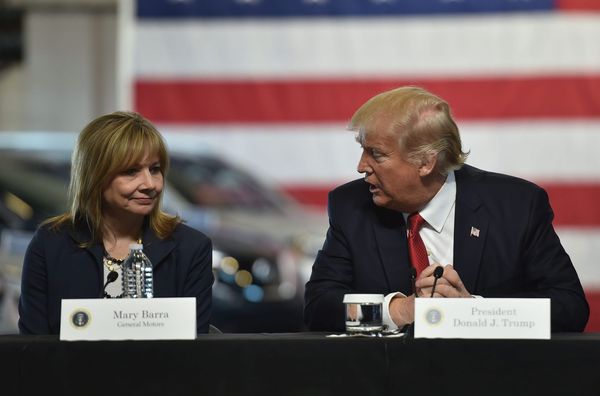
Dating in London is bad. We all know it. Dating as a woman in London is worse. And dating as a disabled woman? Let me tell you: it’s the absolute pits.
Quite how bad the dating world is for me, a very visibly disabled woman, seems to come as a surprise to even the most seasoned and jaded dater. So let me just give you a flavour of some of the hatred and nastiness that has come my way over the past 10 years.
Like most (visibly) disabled people, I was very rarely seen as a sexual or romantically inclined adult when going about my day-to-day life, meaning most of my dating experiences started online. (When I do attempt to strike up conversation in a bar, say, I am variously patronised, ignored or ridiculed. A man once kissed me to fulfil a dare from his mates, sauntering off to high-five them as soon as the deed was done.) While on a dating app it was at least clear why I was there, the relative anonymity freed people to really say what they thought about disabled women, or to ask the questions they wouldn’t have dared to if we’d met face to face.
With grim inevitability, that meant a significant chunk of my dating app conversations started with a question about whether I could have sex, or why I thought a man should ‘have to settle’ for me. Of course, I blocked these guys immediately, but amid the confusion about why they bothered to match — my disability was very prominent on my profile, in part to weed out people who had a problem with it — there was always hurt and sadness. Even immediate blocking didn’t always help; sometimes a match would profess to be unbothered by disability, only to find that my specific level of disability, namely having a speech impediment and needing care support, did in fact bother them quite a lot. And they had no qualms telling me so, sometimes as brutally as possible, but more often by ghosting as soon as I mentioned that a PA had just arrived for the next shift.
I can’t help but think about the fact that, at 28, I have never had so much as a second date, much less a relationship
A lot of this absurd unpleasantness can be put down to pure, unrefined ableism. Disabled people are seen as inherently less worthy, inherently less attractive and inherently separate from the rest of society, so it’s not exactly a surprise that people generally don’t want to date us. Modern dating rituals based on split-second decisions to swipe left or right on a superficial profile and, in London especially, the illusion that there’s always a better option out there, don’t help either. When I meet new people at work or at social events, I usually have a few minutes to make a joke to put them at ease with me and my body; an exhausting task but one I am not even afforded the opportunity to perform on Bumble.
And because, thanks to ableism, disabled people are never represented in the ever-present cultural conversation around dating and relationships, someone swiping on an app has a whole load of subconscious assumptions that I can’t possibly challenge. The problem is therefore not that a guy comes across my profile and consciously decides he doesn’t want to date a disabled person, it is that he comes across my profile and subconsciously wonders what the hell I’m doing there. Ableism, after all, is a silent yet incredibly powerful force.
The ableism I face when it comes to dating is exacerbated by another societal scourge: sexism. This became abundantly clear when, fed up with dating-app abuse and stuck inside thanks to Covid, I made the ill-fated decision to try a dating agency and sent off an application form. To cut an extremely long and winding story short, they eventually sent me an email advising me not to join because people didn’t want to date wheelchair users, and instead suggested I wait until they had set up a disability-specific service (the actual words they used were a lot worse than this precis).
The ableism here is pretty clear to see, particularly in the idea that disabled people should date only each other, which is all kinds of gross. But just because the sexism is more subtle doesn’t mean it’s not there. Certainly, it is there in the paternalist tone of the email (and in their response to the ensuing uproar on Twitter), where they seemed genuinely to believe they were doing me a favour by letting the poor, naive, disabled girl know what the world was really like, as if I didn’t already know all too well. It’s also there, I think, in the brazenness of the whole thing: the fact that no one felt any concern that sending such an email might lead to some negative attention. After all, what could I possibly do about it?
Quite apart from the dating agency email fiasco, sexism has coloured almost all the ableist encounters I’ve had on dating apps. Most notably, it reared its ugly head whenever a man informed me that he didn’t want to date someone he would have to care for or ‘look after’. Put aside, for a second, the staggering assumption that this would be the case when I quite literally employ a whole team for this very purpose, and focus on the gendered dynamic here.
When I canvassed my male disabled friends for their dating experiences, ableism was of course rife. But this aversion to the concept of care simply never came up. Women just weren’t that concerned about possibly having to provide some care within a relationship. In hindsight, this isn’t surprising: whether a relationship involves disability or not, women are conditioned to provide more domestic care. Still, having spent so many years receiving horrible messages about my care needs, it made my head spin to think that, if our dating behaviour wasn’t so shaped by old-fashioned gender roles, the issue may not have ever come up.
To give men a little credit, the handful of them I have been on actual dates with have not been ableist — at least not to my face. Every time I walk past the Founders Arms, that pub by Tate Modern with the incredible view of the City skyline, I smile at the memory of a lovely date I had with a guy who didn’t even bat an eyelid when I called my PA to come and help me to the loo. But the memory is tainted; despite how well we seemed to get on, I never saw him again. I can’t help but think about the fact that, at 28, I have never had so much as a second date, much less a relationship.
That is unlikely to change. After the horror of the dating agency, I decided enough was enough. I had spent the best part of a decade being subjected to the most painful kind of ableism and it had made me miserable. I have often framed my renunciation of dating as the ultimate act of taking back control and power, but that’s not the whole story. There is freedom and joy in no longer waiting for something that will never come, but there is also profound grief for what could have been, if only my dating life hadn’t been ruled by sexist ableism.







